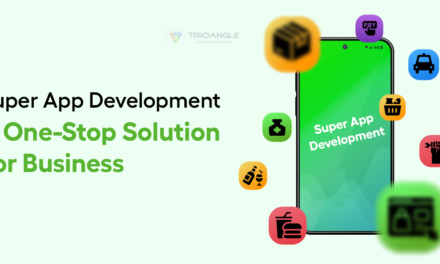In today’s digital age, the sense of community is transforming.
The internet is no longer just a vast, anonymous space; it’s becoming a neighborhood.
One of the platforms leading this revolution is Nextdoor.
But what if you could create your own version of this hyper-local social network?
Enter the Nextdoor clone app.
Do you know what is Nextdoor clone? If not, don’t worry. This blog will help you understand it and enable you to start a profitable business.
Are you ready? Good. Let’s dive in.
Understanding the Nextdoor Clone App
A Nextdoor clone app is a replica of the Nextdoor platform. It embodies the same core functionalities: creating neighborhood-centric social networks where residents can connect, share information, sell items, organize events, and more.
By replicating Nextdoor’s model, you can tap into the immense potential of localized social networks, fostering a stronger sense of community and engagement.
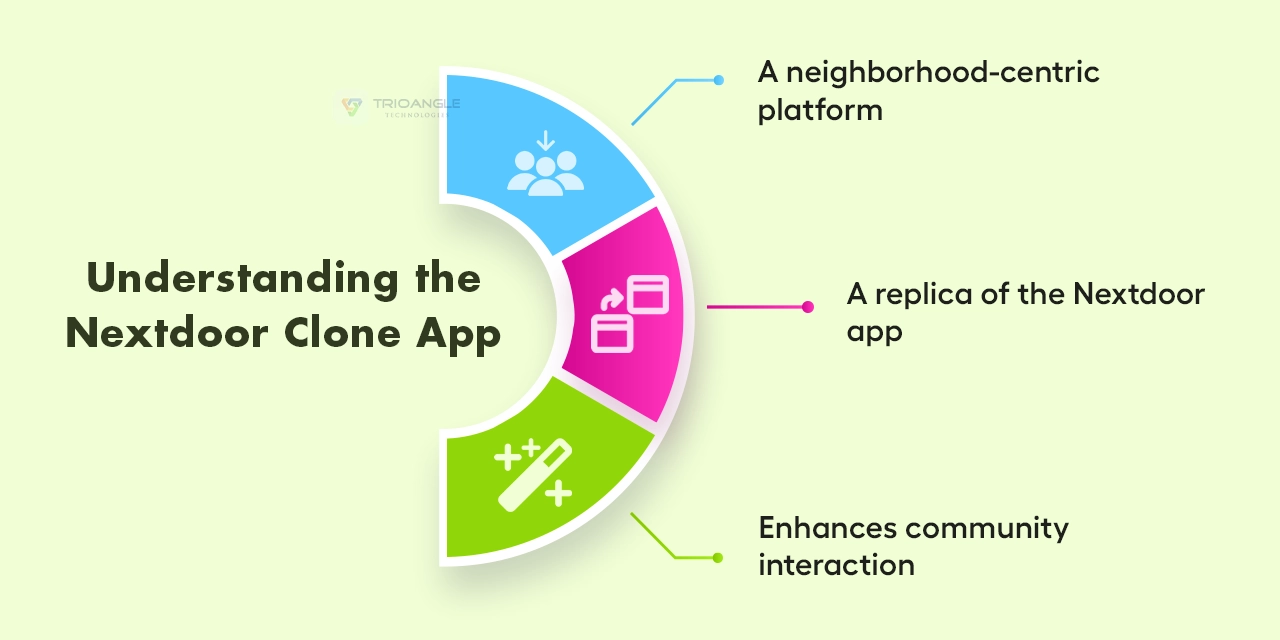
The Allure of Localized Social Networks
The charm of localized social networks lies in their ability to connect people who share the same geographical space. Unlike broader social networks, these platforms thrive on the shared experiences and common interests of neighbors.
Simply put, localized social networks are digital town squares where every post, comment, and interaction is based on real-life, local experiences.
Market Stats and Trends
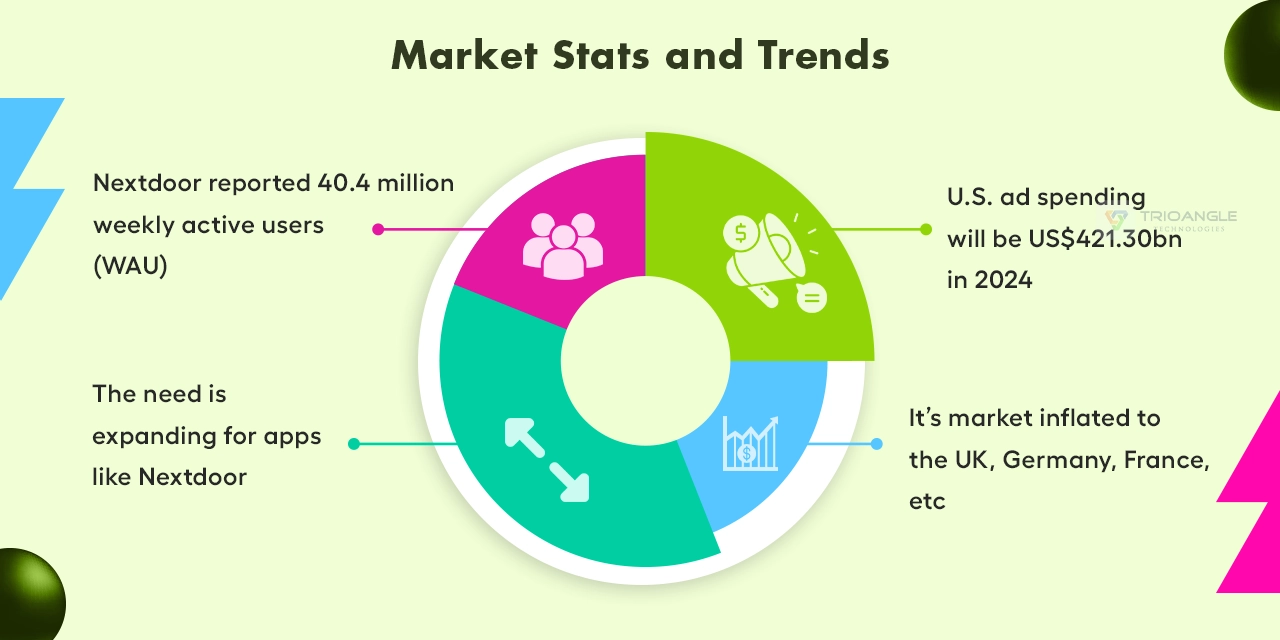
The rise of hyper-local social networks isn’t just a fleeting trend; it’s a booming market segment. According to recent statistics:
1. Growth in Ad Spending: Ad spending in the U.S. alone is projected to reach US$421.30bn in 2024. The data clearly indicates the lucrative opportunities for social media apps like Nextdoor that promote advertisements on their platforms.
2. User Engagement: Platforms like Nextdoor boast high user engagement rates. In 2023, Nextdoor reported that over 40.4 million weekly active users (WAU) were engaging with local content.
3. Global Reach: While Nextdoor started in the U.S., it has expanded to the UK, Germany, France, and Australia, indicating a global appetite for local social networks.
These statistics underscore the immense potential of launching a Nextdoor clone, particularly in untapped or emerging markets.
Key Benefits of Starting a Nextdoor Clone Business
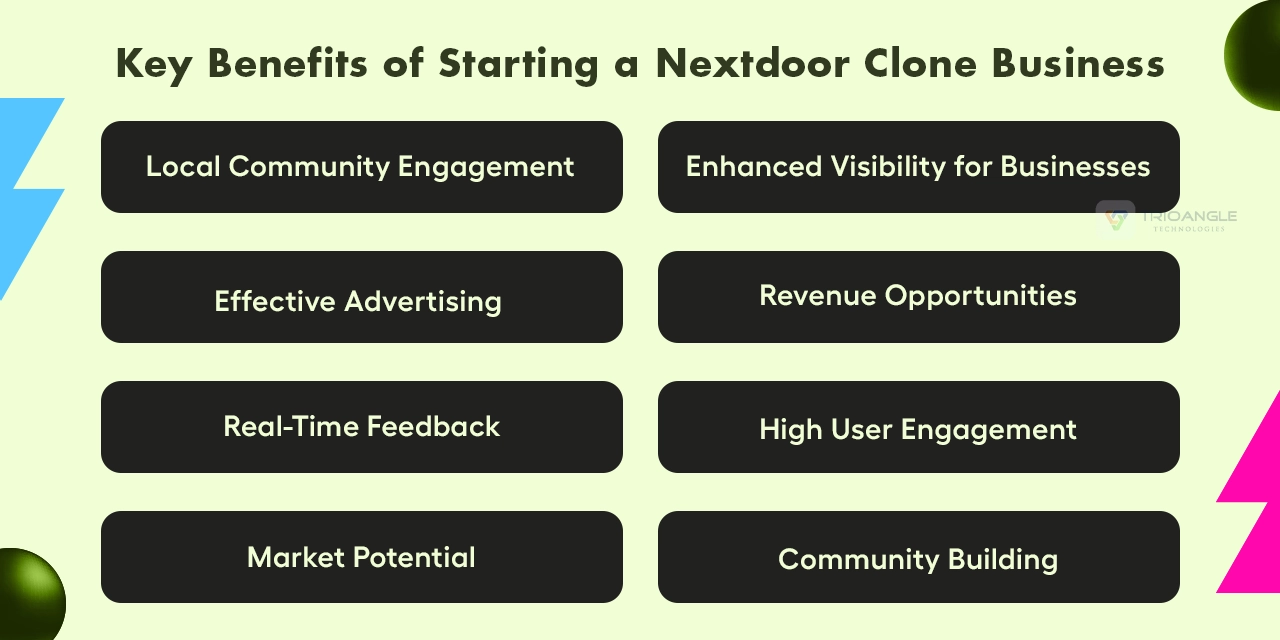
1. Local Community Engagement: Foster a sense of community by connecting neighbors and facilitating local interactions.
2. Enhanced Visibility for Businesses: Help local businesses reach a targeted audience, increasing their visibility and customer base.
3. Effective Advertising: Provide businesses with hyper-local advertising opportunities, ensuring ads are relevant and impactful.
4. Revenue Opportunities: Generate income through advertising, subscriptions, sponsored posts, event promotions, and affiliate marketing.
5. Real-Time Feedback: Enable businesses to receive immediate feedback from their community, allowing for quick adjustments and improvements.
6. High User Engagement: Benefit from the naturally high engagement rates of localized social networks.
7. Market Potential: Tap into the growing demand for hyper-local social platforms, with opportunities for expansion in various regions.
8. Community Building: Create a platform that strengthens local ties and fosters a supportive, connected neighborhood environment.
Starting a Nextdoor clone business not only taps into a growing market but also strengthens local communities. Adopt the potential of hyper-local networks and transform how communities interact and grow.
Revenue Models for a Nextdoor Clone
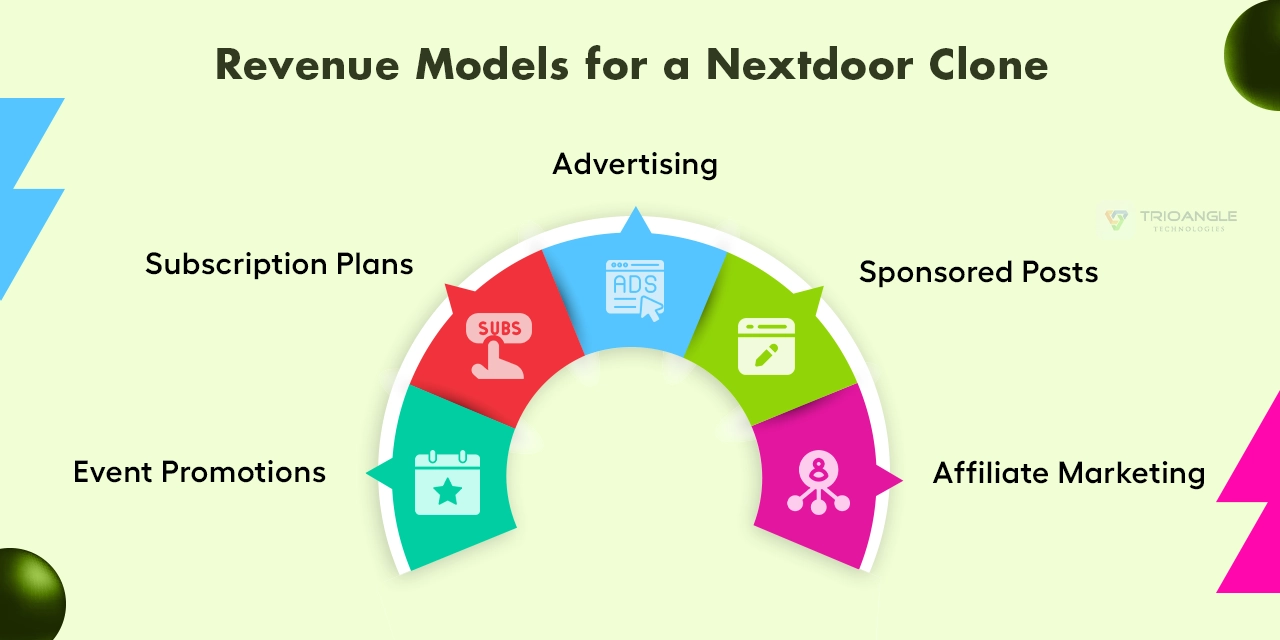
Creating a sustainable business model for a Nextdoor clone involves exploring multiple revenue streams:
1. Advertising: Local businesses can purchase ad space on your platform to promote their products and services. Given the localized nature of the platform, ads are more effective and relevant to users.
2. Subscription Plans: Premium features such as enhanced visibility, additional posting options, or analytics can be offered through subscription plans to local businesses.
3. Sponsored Posts: Similar to social media platforms, businesses can pay for sponsored posts that appear prominently in users’ feeds.
4. Event Promotions: Charging fees for promoting local events or offering premium event organization tools can be a significant revenue source.
5. Affiliate Marketing: Partnering with local businesses to promote their services and taking a commission on sales generated through your platform.
Case Study: A Hypothetical Launch
Imagine launching a Nextdoor clone in a mid-sized European city.
You start by conducting thorough market research, discovering that the city has a vibrant local business scene but lacks a cohesive online community platform.
You then develop a sleek, user-friendly app and website, tailored to the local culture and language.
Upon launch, you focus on community building, partnering with local influencers and businesses to generate buzz.
You host a series of local events, both online and offline, to encourage sign-ups and engagement.
As user numbers grow, you introduce targeted advertising and premium subscription plans for businesses, offering them enhanced visibility and analytics tools.
Within a year, your platform becomes the go-to place for local news, recommendations, and business promotions.
Users appreciate the localized content and the sense of community, while businesses value the direct connection with potential customers.
Conclusion
A Nextdoor clone script offers a unique opportunity to capitalize on the growing trend of hyper-local social networks.
By creating a platform that fosters community engagement and supports local businesses, you can build a sustainable and profitable venture.
With the right strategy, your Nextdoor clone can become a social connection and economic growth.
Ready to Start Nextdoor Like Business?


